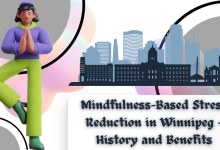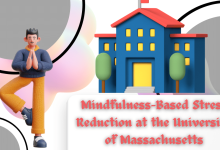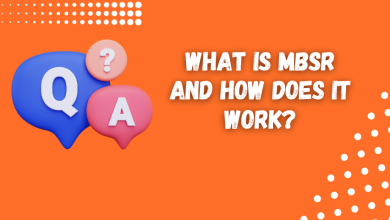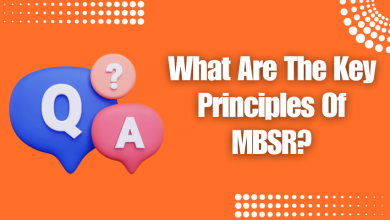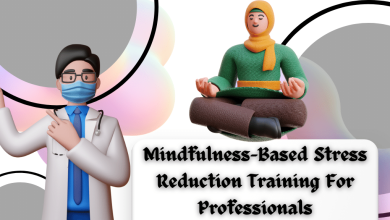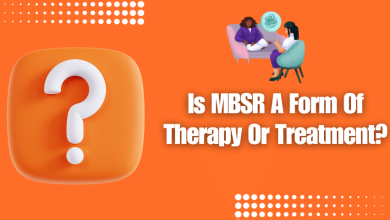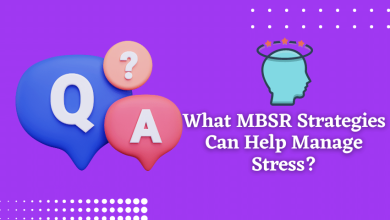Effects Of Mindfulness Based Stress Reduction On Medical And Premedical Students
As an individual who has been practicing MBSR for a long, have seen and experience difference curriculum that seems to have mindfulness technique in them in order to foster the learning and understanding of the students.
Now let’s discuss the aspect of MBSR on medical and premedical students
Medical and premedical education can be incredibly demanding, and students in these fields often experience high levels of stress.
Mindfulness-based stress reduction (MBSR) is a technique that has been shown to be effective in reducing stress and promoting well-being.
In this article, we will explore the benefits of MBSR for medical and premedical students, as well as the research supporting its use.
What is Mindfulness-Based Stress Reduction?
MBSR is a form of meditation that involves bringing one’s attention to the present moment without judgment.
It was developed by Jon Kabat-Zinn in the 1970s and is typically taught in an 8-week course.
The course includes a combination of mindfulness meditation, gentle yoga, and group discussions.
Effects Of Stress On Medical and Premedical Students
Medical and premedical students face a significant amount of stress, which can have negative effects on their mental and physical health, as well as their academic performance.
Some of the effects of stress on medical and premedical students include:
- Burnout
- Depression
- Anxiety
- Substance abuse
- Poor academic performance
A real-life scenario that can best explain the effects of stress on medical and premedical students is a student who is constantly studying and worrying about exams, leading to exhaustion, lack of sleep, and poor academic performance.
The Benefits of Mindfulness-Based Stress Reduction for Medical and Premedical Students

MBSR has been shown to have a variety of benefits for medical and premedical students, including:
- Reduced stress
- Reduced anxiety and depression
- Improved well-being
- Improved academic performance
- Increased empathy and compassion for the patient
Not satisfied with the bullet point? Then I will expatiate below
1. Reduced Stress
The practice of mindfulness has been shown to reduce stress levels in medical and premedical students.
By helping them to become more aware of their thoughts, emotions, and bodily sensations, MBSR can help students to manage stress in a more effective way.
2. Reduced Anxiety And Depression
Medical and premedical students are at a higher risk of developing anxiety and depression due to the high levels of stress and pressure they experience.
MBSR has been shown to reduce symptoms of anxiety and depression, providing a natural and effective alternative to medication.
3. Improved well-being
Practicing mindfulness has been linked to improved overall well-being and quality of life.
Medical and premedical students who practice MBSR are likely to experience an increased sense of calm and inner peace, leading to greater overall well-being.
4. Improved Academic Performance
Research has shown that practicing mindfulness can improve cognitive function and academic performance.
Medical and premedical students who practice MBSR may experience improved memory, attention, and problem-solving abilities.
5. Increased Empathy And Compassion For The Patient
Medical and premedical students who practice MBSR have been found to have increased empathy and compassion for their patients.
By becoming more aware of their own emotions and experiences, students can become more attuned to the needs and experiences of their patients.
Overall, MBSR has the potential to be a valuable tool for medical and premedical students, helping them to manage stress, improve well-being, and develop important skills for their future careers.
Let’s move on.
Research on the Effects of Mindfulness-Based Stress Reduction on Medical and Premedical Students
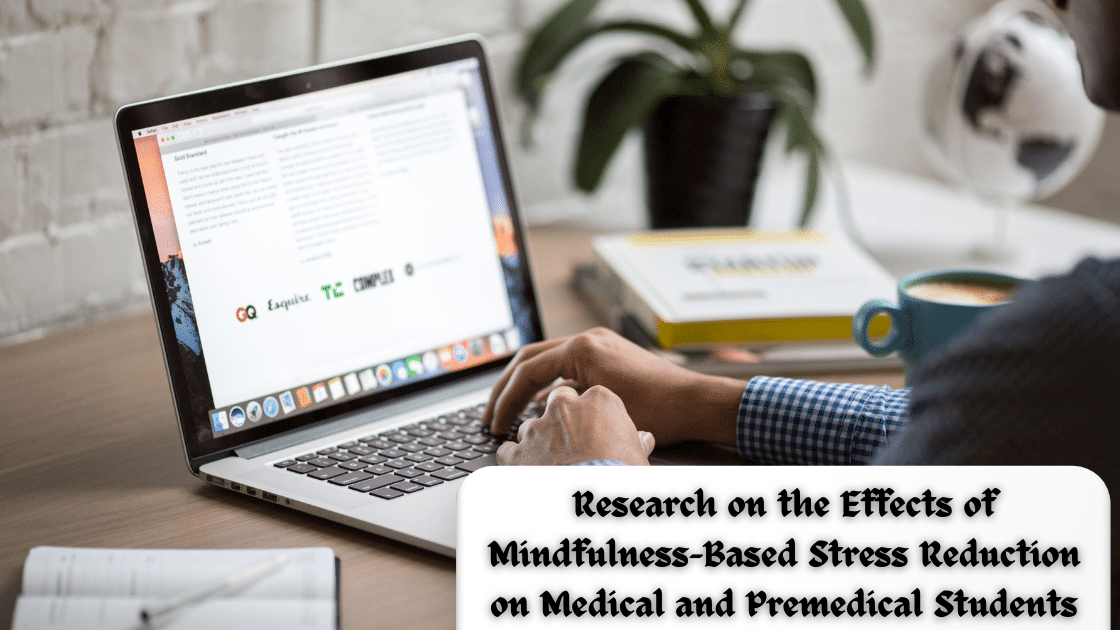
Several studies have been conducted on the effects of MBSR on medical and premedical students, with positive results.
For example, one study found that medical students who participated in an MBSR program had lower levels of stress, anxiety, and depression than those who did not participate.
Another study found that MBSR improved empathy and reduced burnout among medical students.
How Mindfulness-Based Stress Reduction is Implemented in Medical and Premedical Education
MBSR can be a valuable addition to medical and premedical education, helping students to manage stress and develop skills that can enhance their personal and professional lives.
There are various ways in which MBSR can be implemented in medical and premedical education:
1. Offering MBSR Courses As Part Of The Curriculum
Many medical schools and premedical programs now include MBSR courses as part of their curriculum.
These courses are often taught by certified MBSR instructors and may cover topics such as mindfulness meditation, body awareness, and stress reduction techniques.
2. Providing MBSR training To Faculty And Staff
Medical schools and premedical programs can also provide MBSR training to faculty and staff, who can then incorporate mindfulness practices into their teaching and mentoring.
This can create a more mindful learning environment and help to build a supportive community for students.
3. Encouraging Students To Participate In MBSR Programs Outside Of The Curriculum
Medical schools and premedical programs can also encourage students to participate in MBSR programs outside of the curriculum.
This can include local MBSR classes, online programs, or self-guided mindfulness practices.
Providing resources and support for students who wish to pursue mindfulness can help to make it a more accessible and sustainable practice.
By incorporating MBSR into medical and premedical education, schools can help students to develop the skills they need to manage stress, cultivate resilience, and thrive both personally and professionally.
However, there are also limitations and challenges to implementing mindfulness practices in medical education, which will be discussed in the next section.
Practical Example of MBSR on Premedical Students
As a premedical student, Sarah struggles with the heavy workload and constant pressure to succeed.
After attending an MBSR course as part of her curriculum, she learns techniques to manage stress and improve focus.
Sarah begins to incorporate mindfulness practices into her daily routine and notices a significant improvement in her academic performance and overall well-being.
Limitations and Challenges of Implementing Mindfulness-Based Stress Reduction in Medical and Premedical Education
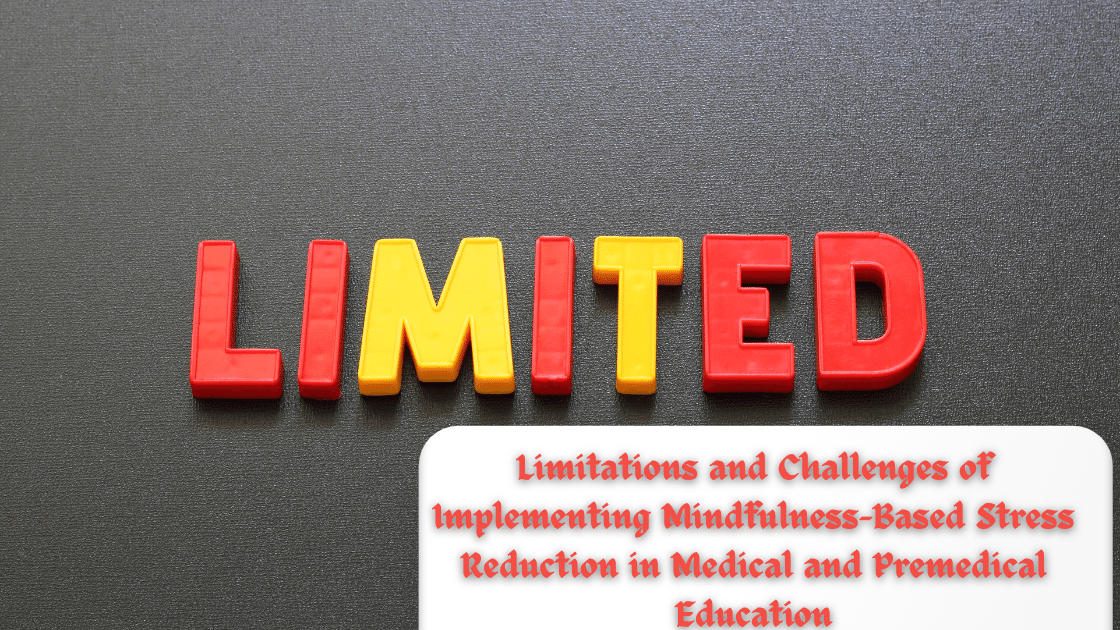
Despite its benefits, there are also limitations and challenges to implementing MBSR in medical and premedical education. Some of these include:
- Time constraints
- Funding limitations
- Resistance from faculty and staff
- Limited evidence of its effectiveness in improving clinical outcomes
Now let’s explain it in detail
1. Time Constraints
Medical and premedical education are often intensive programs that require a lot of time and effort from students and faculty.
Adding MBSR programs to an already packed curriculum can be challenging, as it may require additional time commitments from both students and faculty.
2. Funding Limitations
Implementing MBSR programs can also be expensive, and many medical and premedical education programs may not have the resources to fund these programs.
This can make it difficult to offer MBSR programs as part of the curriculum.
3. Resistance From Faculty And Staff
Some faculty and staff may be resistant to implementing MBSR programs in medical and premedical education due to a lack of familiarity with mindfulness practices or skepticism about its effectiveness.
This can make it difficult to gain buy-in from all stakeholders involved.
4. Limited Evidence Of Its Effectiveness In Improving Clinical Outcomes
While there is ample evidence of the benefits of MBSR for reducing stress and improving overall well-being, there is limited evidence of its effectiveness in improving clinical outcomes such as patient care and medical decision-making.
Real-life scenario That Explains this section better
Imagine a medical school dean considering implementing MBSR programs in the curriculum, but facing pushback from faculty who are skeptical about its effectiveness and worried about the additional time commitment it would require from students and staff.
The dean must carefully weigh the potential benefits and limitations of implementing MBSR in medical education.
The Importance of Mindfulness-Based Stress Reduction for Medical and Premedical Students
Overall, MBSR is a valuable tool for medical and premedical students to reduce stress and improve their well-being.
While there are challenges to implementing it in medical and premedical education, the benefits are clear and efforts should be made to incorporate it into these programs.
By prioritizing the mental health and well-being of medical and premedical students, we can improve not only their educational experience but also the care they provide to their future patients.

